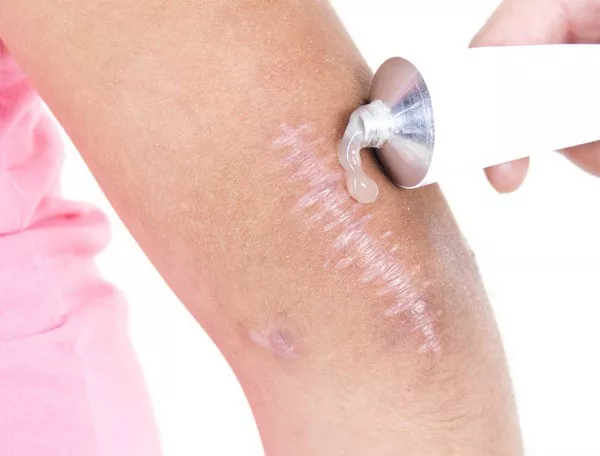Understanding the Science Behind Scarring
Scars are a common consequence of wound healing, resulting from the body’s natural repair process. While scars can vary in size, shape, and appearance, many individuals seek ways to minimize their visibility. Among the various treatment options available, vitamins have gained significant attention for their potential role in scar management. In this comprehensive review, we will focus on Vitamin E and its impact on scar healing.
The Biochemical Properties of Vitamin E
Biochemical Overview:
Vitamin E is a fat-soluble antioxidant that encompasses a group of compounds known as tocopherols and tocotrienols. It acts as a potent scavenger of free radicals, preventing oxidative stress and protecting cell membranes from damage. Additionally, vitamin E plays a crucial role in modulating inflammation and enhancing tissue repair processes.
Mechanisms of Action: How Vitamin E Affects Scar Healing
1. Antioxidant Effects:
One of the primary mechanisms by which vitamin E influences scar healing is through its antioxidant properties. By neutralizing harmful free radicals, it prevents cellular damage and promotes a favorable wound healing environment. This antioxidant effect also reduces inflammation, further contributing to scar reduction.
2. Collagen Synthesis:
Collagen, the main structural protein in the skin, plays a vital role in scar formation. Vitamin E has been shown to stimulate collagen synthesis and promote the remodeling of scar tissue, leading to improved scar appearance over time.
3. Moisturization and Hydration:
Dryness and lack of moisture can impede the healing process and contribute to scar formation. Vitamin E acts as an effective moisturizer, promoting hydration and preventing excessive dryness, which can help improve the overall texture and appearance of scars.
Clinical Evidence Supporting Vitamin E for Scar Healing
1. Research Studies:
Numerous studies have investigated the effects of vitamin E on scar healing. While some studies have reported positive outcomes, others have shown conflicting results. It is important to note that the efficacy of vitamin E in scar treatment may depend on various factors, including the type and severity of the scar, as well as individual variations in skin response.
2. Topical Application:
Topical application of vitamin E has been widely studied for scar management. Some studies have demonstrated its potential benefits, such as reduced scar redness, improved elasticity, and decreased itchiness. However, caution must be exercised when using topical vitamin E, as it may cause skin irritation or allergic reactions in some individuals.
Considerations and Precautions
1. Consultation with Healthcare Professionals:
Before embarking on any scar treatment regimen, it is essential to consult with a healthcare professional, particularly if the scar is extensive, raised, or causing functional limitations. They can provide personalized advice based on the specific characteristics of the scar and guide you on the most appropriate treatment options.
2. Patch Testing:
Since vitamin E can sometimes cause skin irritation or allergic reactions, it is advisable to perform a patch test before applying any topical products containing vitamin E. This involves applying a small amount of the product to a small area of skin and monitoring for any adverse reactions before using it more extensively.
3. Combination Therapy:
In addition to vitamin E, various other treatment modalities, such as silicone sheets, corticosteroid injections, laser therapy, and surgical interventions, may be recommended depending on the nature of the scar. Vitamin E should not be considered a standalone solution but rather as part of a comprehensive scar management plan.
Conclusion
While the use of vitamin E for scar healing remains a topic of debate, numerous studies suggest its potential benefits in reducing scar appearance and promoting tissue regeneration. However, individual responses may vary, and it is crucial to seek professional guidance when considering scar treatments. Vitamin E should be used cautiously, and any adverse reactions should be promptly reported to a healthcare provider. Further research is needed to establish standardized protocols and determine the optimal dosage and duration of vitamin E supplementation or topical application for scar healing.
In summary, while vitamin E holds promise as a potential aid in scar healing, more investigation is required to fully understand its effectiveness and optimize its use in clinical practice.


